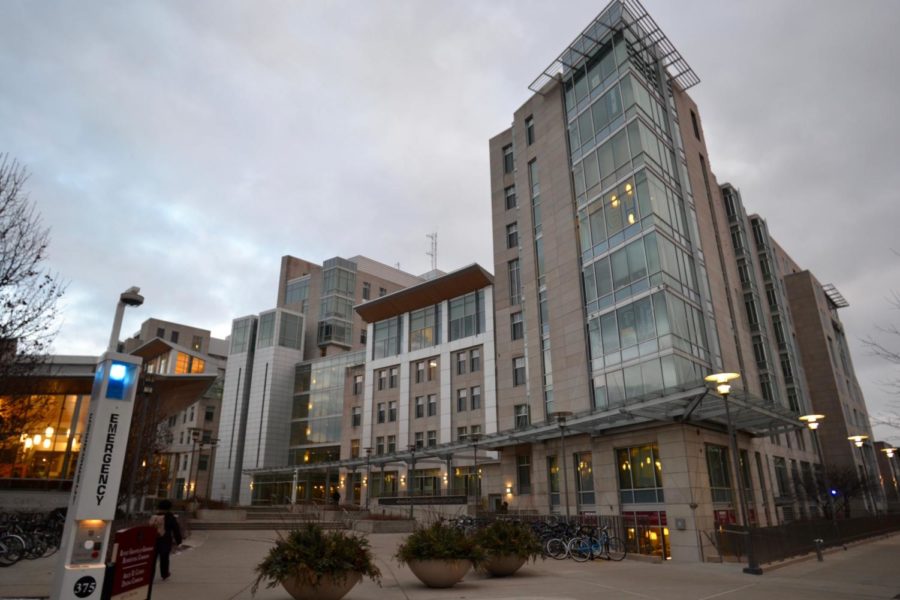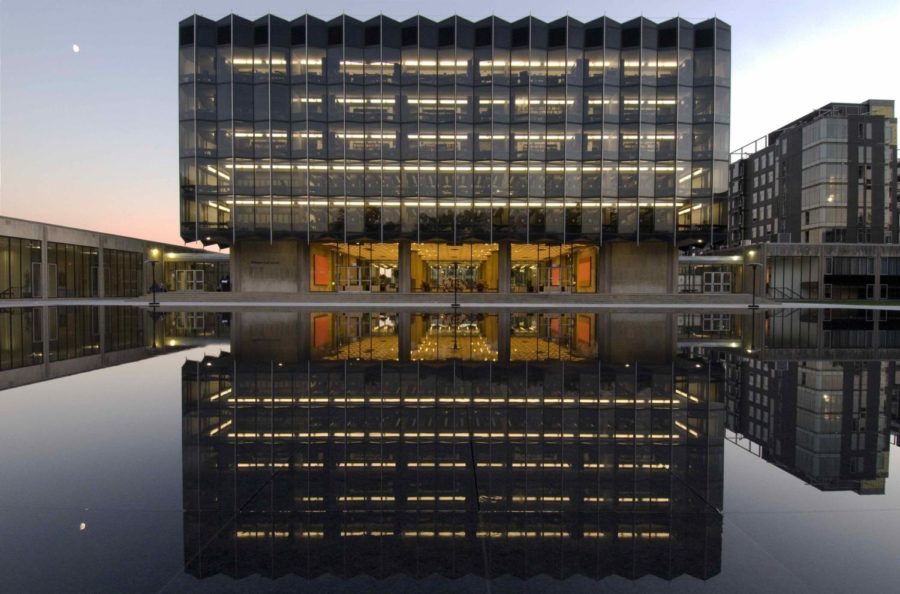The popular physical sciences class titled Global Warming: Understanding the Forecast has adopted a “flipped” class format this quarter, in which students receive primary instruction through videos on Coursera, an online education platform. Rather than traditional lecture-style classes with a faculty member, the format relies on graduate students for nearly all the in-person teaching.
Geophysical sciences professor Dorian Abbot, who took over the course this year from professor David Archer, who told The Maroon he developed the flipped curriculum to improve attendance in a class that has historically been poorly-attended, and also to reduce cheating. He piloted the new format in fall quarter of 2018, and has adopted it in full this spring.
Instead of lectures given in class by a professor, students will learn the material by watching videos from a Coursera class created by Archer, who taught Global Warming to undergraduates in the College for many years, including in 2017 and 2018. Coursera is an online learning platform that hosts classes created by instructors at many universities. The classes offered by UChicago professors are available to anyone, including those with no UChicago affiliation, for free, or for $49 to receive a certificate upon completion. Other than having created the Coursera class, Archer has no involvement with the class being taught at UChicago this quarter.
One goal of the flipped classroom is to increase the number of students who regularly attend class meetings. Abbot told The Maroon via email that with the new course structure, attendance “has run about 90-95%, which is a great improvement over the lecture version,” which he said had an attendance rate between 20 and 25 percent. Moving away from the lecture format has also increased the number of students who can enroll in the course, since each section has its own graduate student instructor.
Flipping the class also has the potential to reduce cheating. Abbot said that in the past “there has been a major issue with cheating in the class.” Some students in the old version of the class “were handing in bit-wise identical files for assignments.” He designed the new course to alleviate this issue by creating quizzes that accompany the video lectures. “You can answer them as many times as you need to in order to get the right answer,” he said. There is a similar policy for in-class assignments.
Although graduate students run class meetings, the Department of Physical Sciences lists Abbot and professor Douglas MacAyeal as instructors for Global Warming. The University’s course registration website lists Abbot as teaching 13 sections of Global Warming this quarter, including multiple lectures that occur at the same time in different classrooms. “I will visit each section at least once and I have two hours of office hours per week,” said Abbot.
The prevalence of flipped classes at UChicago has been increasing in recent years. In addition to Global Warming, Abbot teaches another class, The Atmosphere, as a flipped classroom. Britni Ratliff, a senior lecturer in the Department of Chemistry, also teaches a flipped introductory chemistry course.
“Flipped classes are the way of the future, and the University of Chicago needs to establish itself as a leader in this area in order to continue our tradition of academic excellence,” Abbot said.
Second-year Alice May, who is currently taking Global Warming, had a positive outlook on the new format.
“[The flipped format] allows smaller class sizes with more direct contact with qualified adults than the single professor, large lecture model,” she told The Maroon.
Two students, who wished to remain anonymous because they are currently enrolled in the course, had mixed feelings about the change.
One student hoped that flipping the course structure would increase the rigor of PhySci Core classes, which students often think “are sort of easy classes.” That student also told The Maroon that “the new style seems interesting and a bit odd. It might be better, but it also could be worse; I'm ambivalent.”
Another student said they are “tired of having classes with Ph.D.s” instead of professors. The student felt that listing full professors as instructors while having graduate students teach classes was “false advertising.”
“I wanted to take the class because I thought it would be with an actual professor,” the student said.
Grant MacDonald, a Ph.D. candidate in the Department of Geophysical Sciences and member of Graduate Students United (GSU), is one of the graduate students teaching Global Warming this quarter. When asked to share thoughts about the course, he raised questions about the role of graduate student labor in the teaching of Global Warming and expressed dismay that UChicago continues to refuse to recognize graduate students as workers, although they teach undergraduate classes.
“The fact that the University admin argues that the teaching we do is not ‘work’…is absurd and galling—any student in our classes can see what we do,” MacDonald told The Maroon.
“Whatever the larger-scale political discussion associated with unionization is, I see it as my duty to improve undergraduate education and help graduate students develop, and I'm trying to do that as best as I can,” Abbot said.
He also explained that he had redesigned the course with an eye toward “[making] sure the graduate student lecturers are not doing more hours than they did as teaching assistants” in the previous version of the class.
“In some areas of the University, graduate students have serious concerns about their experiences,” Abbot acknowledged. But he hopes members of the University community “can all work together to ensure the best possible outcomes for both undergraduate and graduate students, whether that involves a graduate student union or not.”
When reached for comment, GSU said “as this class (like so many others) demonstrates, the administration is more than willing to rely on us to perform the essential teaching duties that are crucial to the University’s functioning. We’re dedicated to teaching, and we have no objections to innovative classroom structures. But we have to ask if grad instructors are receiving the support they deserve, in terms of both compensation and pedagogical guidance.”







